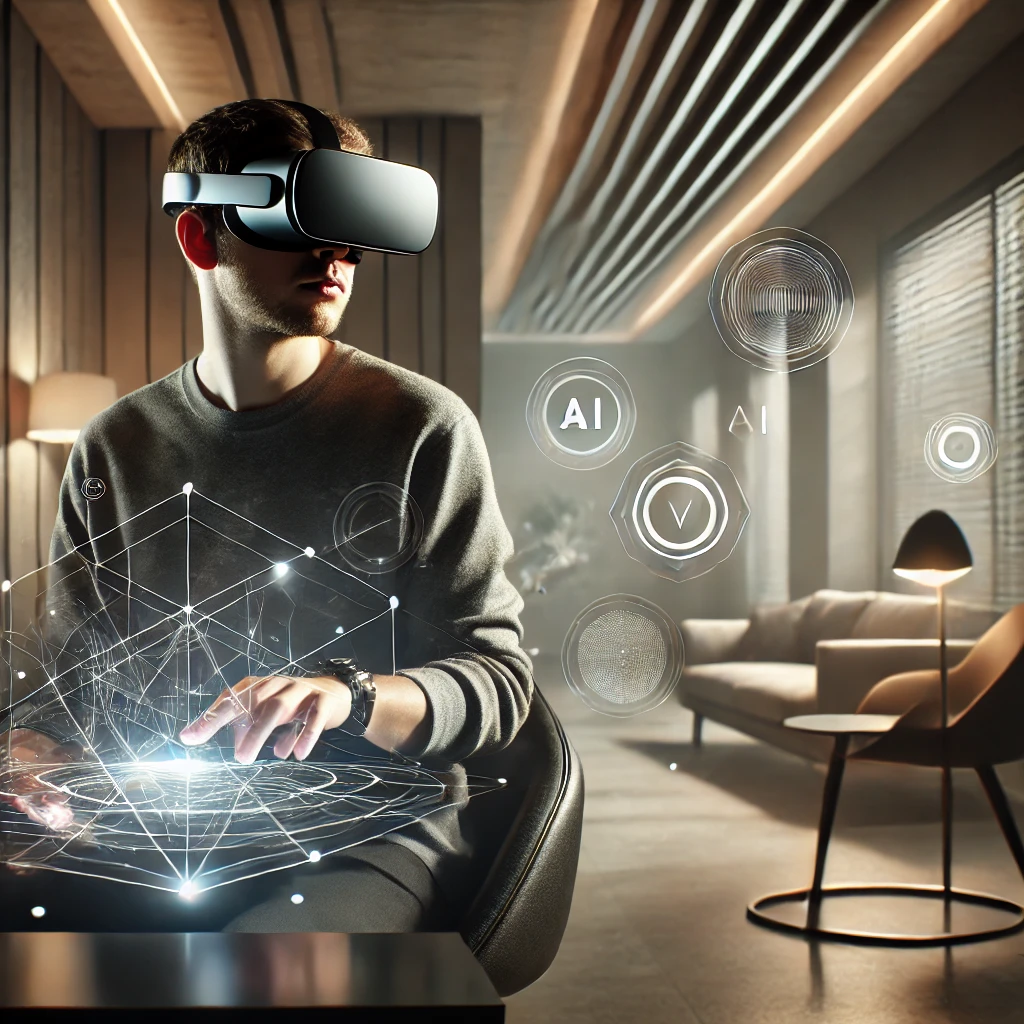The integration of AI in VR entertainment is creating experiences that were unimaginable just five years ago. From video games that adapt to your playstyle to virtual concerts with reactive crowds, artificial intelligence is the invisible force making virtual worlds feel alive. This article explores how AI transforms VR entertainment across gaming, film, and social experiences.
1. How AI Enhances VR Gaming
1.1 Dynamic World Generation
AI in VR entertainment allows for procedurally generated environments that evolve in real-time. Unlike traditional games with fixed maps, AI-powered VR titles like No Man’s Sky create entire galaxies that respond to player actions. Key innovations include:
- Terrain that morphs based on gameplay decisions
- Weather systems that learn from user behavior
- Non-repeating questlines powered by narrative AI
Industry Insight: A 2023 Epic Games study showed AI-rendered VR environments reduce development time by 40% while increasing player engagement by 65%.
2. Role of AI in VR Entertainment Films and Social Experiences
2.1 Interactive Storytelling
Modern VR entertainment powered by AI lets viewers influence narratives through:
- Eye-tracking that changes plot directions
- Voice-activated dialogue trees with NPCs
- Emotion recognition that alters scene intensity
Example: The VR film The Invisible Hours uses AI to let viewers follow different characters, creating unique story paths for each user.
2.2 Social VR Revolution
Platforms like Meta Horizon Worlds leverage AI for Virtual Reality entertainment through:
- Real-time language translation for global users
- AI moderators that detect harassment
- Smart avatars that mimic user expressions
3. Essential AI Technologies Powering VR
| Technology | Function | VR Application |
|---|---|---|
| Generative AI | Creates 3D assets/textures | Instant world-building |
| Neural Networks | Processes motion data | Lifelike avatar movements |
| LLMs (ChatGPT) | Drives NPC dialogues | Natural character interactions |
Conclusion: The Next Frontier
AI in VR entertainment is advancing toward:
- Personalized worlds that adapt to individual preferences
- Haptic feedback systems guided by AI emotion detection
- Photorealistic avatars rendered in real-time
As these technologies mature, the line between virtual and physical reality will continue to blur. For creators and consumers alike, understanding AI’s role in VR entertainment is key to shaping the future of digital experiences.


